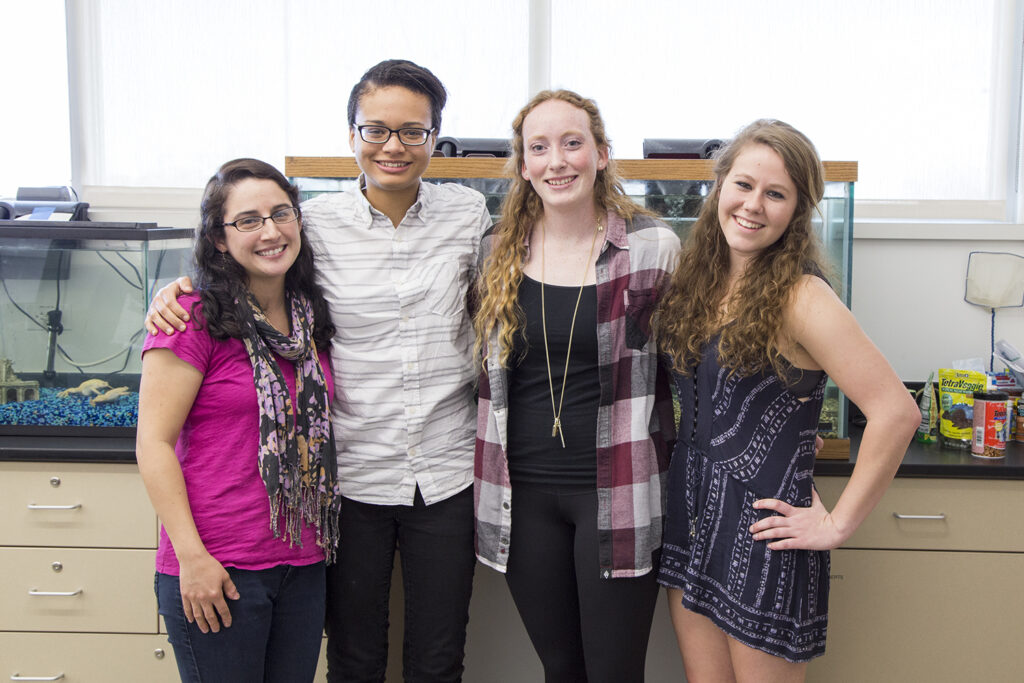Williams, Graham, Tighe and Favela worked together to study capsaicin on non-alcoholic fatty liver disease, also known as obesity. The lab at UW, under the direction of Dr. Thyagarajan, raised the mice that were tested. Each mouse was either put on a diet high in fat or high in fat with the addition of capsaicin. Once CWC received the livers from the mice they extracted and measured lipid levels to see if those levels were affected by the capsaicin supplement.
“The best thing is learning in class and doing the practical application in the labs, it makes it real,” Favela said.
“It gives us the opportunity to learn from our mistakes,” Tighe said. “It doesn’t always work the way the book or lecture says it should.”
All four students will transfer to UW in the fall, each taking a separate path in their studies. Rachel Graham and Rachel Tighe are both studying physiology, Favela will be studying molecular biology and Williams will study microbiology.
“I’m looking forward to seeing what research is going on in the labs at UW and we will get to help in several labs,” Favela said.
“It will be nice to do research on something that is more related to the degree program we are all going into,” Graham said.
“I’ve really enjoyed working with these students,” McAllister said. “They are some of the best students I’ve had.”



